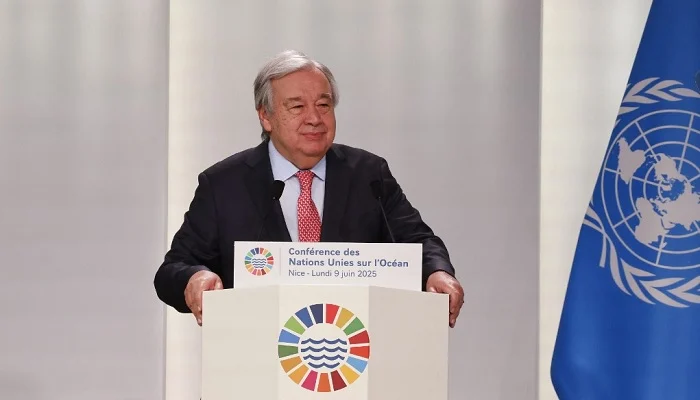NICE: United Nations Secretary General Antonio Guterres said on Monday the world could not let the deepest oceans “become the wild west,” at the start in France of a global summit on the seas.
World leaders are attending the UN Ocean Conference in Nice as nations tussle over contentious rules on mining the seabed for critical minerals and the terms of a global treaty on plastic pollution.
US President Donald Trump has brought urgency to the debate around deep-sea mining, moving to fast-track US exploration in international waters and sidestepping global efforts to regulate the nascent sector.
The International Seabed Authority, which has jurisdiction over the ocean floor outside national waters, is meeting in July to discuss a global mining code to regulate mining in the ocean depths.
Guterres said he supported these negotiations and urged caution as countries navigate these “new waters on seabed mining.”
“The deep sea cannot become the wild west,” he said, to applause from the plenary floor.
Many countries oppose seabed mining, and France is hoping that more nations will join a moratorium until more is known about the ecological impacts of the practice.
French President Emmanuel Macron said a moratorium on deep-sea mining was “an international necessity.”
Wave of commitments
“I think it´s madness to launch predatory economic action that will disrupt the deep seabed, disrupt biodiversity, destroy it and release irrecoverable carbon sinks — when we know nothing about it,” the French president said.
The deep sea, Greenland and Antarctica were “not for sale”, he said in follow-up remarks to thunderous applause.
Macron said a global treaty to govern the high seas had received enough ratifications to enter into force and was “a done deal”, without specifying a timeline.
The agreement struck in 2023 required ratifications from 60 signatory countries to become international law, and Macron said the numbers “had been reached, which allows us to say that the high seas treaty will be implemented.”
Other commitments on ocean conservation are expected on Monday in Nice, where around 60 heads of state and government will join thousands of business leaders, scientists and civil society activists.
On Monday, the United Kingdom is expected to announce a partial ban on bottom trawling in half its marine protected areas, putting the destructive fishing method squarely on the summit agenda.











